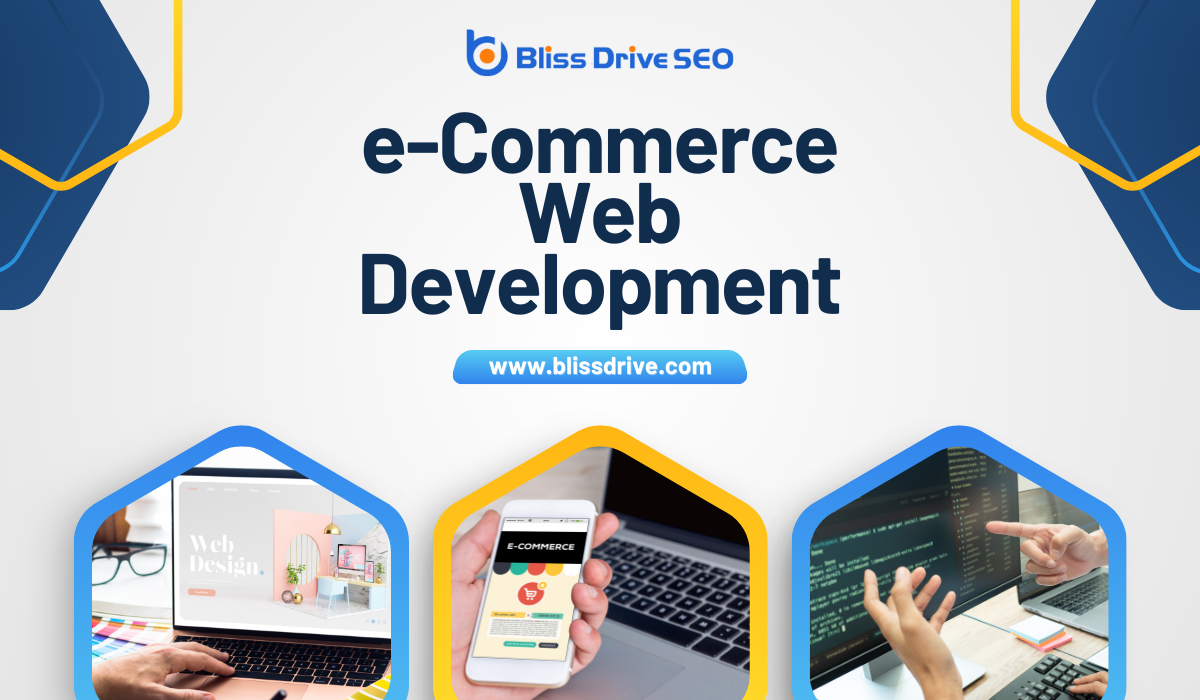Digital Marketing Services
Learn More About Us

Today's digital landscape thrives on robust e-Commerce web development strategies. The online shopping experience has become the beating heart of the modern retail industry, making e-Commerce web development a pivotal area for businesses worldwide. This article elucidates the intricate elements of e-Commerce web development and how it fuels the creation of dynamic online shopping experiences.
e-Commerce web development involves creating, designing, and maintaining websites that facilitate online shopping. It brings together various web development aspects like user interface (UI) design, database management, backend development, and cybersecurity, all streamlined towards an engaging, user-friendly, and secure online shopping experience.
Choosing the right e-commerce platform, incorporating secure payment gateways, and optimizing the site for mobile use are just some critical elements in this domain. A deep understanding of the complex interplay of these components is crucial for creating a successful e-Commerce website.
Selecting an e-commerce platform is the first significant step in e-commerce web development. Your platform is the foundation of your online store and should, therefore, offerThe specific product or service being promoted by affiliates. flexibility, scalability, and security. If you have a business in Anaheim needing web development services, reach out to us so we can help you establish a strong online presence.
Popular e-commerce platformsSoftware solutions that allow businesses to create and manage online stores, such as Shopify, WooCom... include Shopify, WooCommerce, Magento, and BigCommerce. Each comes with its own set of strengths and trade-offs. For instance, Shopify is known for its ease of use, while Magento is loved for its customizable features. It's important to carefully analyze your business needs before selecting a platform.
The user interface (UI) and user experience (UX)The overall experience a user has when interacting with a website or application, including usabilit... play pivotal roles in ensuring seamless online shopping experiences. UI pertains to the aesthetics of the website, while UX deals with functionality and user interactionAny action taken by a user on social media, such as likes, comments, shares, or retweets..
An e-Commerce website must be visually appealing, intuitive, and easy to navigate. Incorporating features like product filters, search bars, and easy checkout processes can significantly enhance the user experience. Likewise, high-quality images, compelling product descriptionsDetailed information about a product, including features, benefits, and specifications., and a harmonious color scheme can elevate the overall aesthetic appeal.
Database management and backend development ensure the seamless operation of an e-Commerce website. A database stores crucial information like product details, customer data, and transaction history. A robust and well-structured database ensures quick retrieval and update of information, thereby ensuring smooth website functionality.
Backend development connects the database with the frontend, ensuring the website responds correctly to user actions. It involves server-side programming using languages like PHP, PythonA high-level programming language widely used for data analysis and machine learning., or Ruby, and requires expertise in handling APIs, servers, and databases.
As mobile commerce continues to surge, optimizing e-Commerce websites for mobile use has become a necessity. A mobile-optimized website is designed to display correctly on smaller screens, with easy navigation and quick loading times.
Mobile optimizationDesigning and formatting web content to ensure it performs well on mobile devices. not only enhances the shopping experience for mobile users but also improves your website’s SEO ranking. Google’s mobile-first indexing ranks websites based on their mobile version, making mobile optimization a critical e-commerce web development strategy.
In the era of increasing cyber threats, security has become a paramount concern in e-Commerce web development. A secure e-commerce website reassures customers, promoting trust and loyalty.
SSL certificates, secure payment gateways, regular security audits, and adhering to PCI-DSS standards are vital for maintaining an e-commerce website's security.
e-Commerce web development refers to creating, designing, and maintaining websites that facilitate online shopping. It involves several aspects, including choosing an e-commerce platform, UI/UX design, database management, backend development, mobile optimization, and cybersecurity.
e-Commerce web development enhances the online shopping experience by creating visually appealing, intuitive, and secure websites. Proper database management ensures smooth website functionality, while mobile optimization caters to the growing number of mobile shoppers.
Security is crucial in e-commerce web development as it protects sensitive customer data, including personal information and payment details. A secure website promotes customer trust and loyalty, which can significantly boost sales and reputation.
In conclusion, effective e-Commerce web development is crucial in the digital age. By ensuring an engaging UI, seamless UX, mobile optimization, and robust security, businesses can create dynamic online shopping experiences that drive growth and customer satisfaction.
